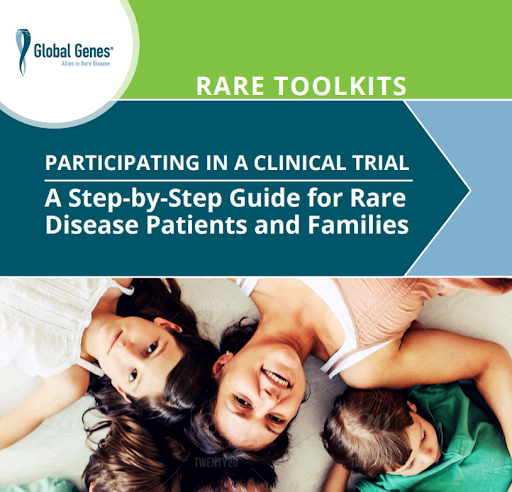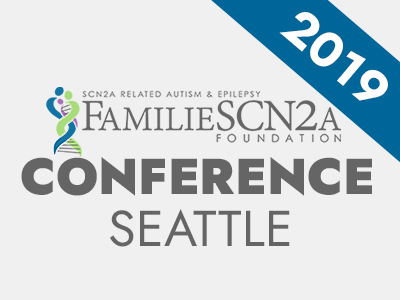Participation in research is our greatest hope for better treatments and cures for all SCN2A-related disorders! To accelerate research, the best thing patients and their families can do is to learn about their SCN2A variant and available research projects. Here you will find educational resources on research and drug development processes, clinical trials, and SCN2A-specific projects. To stay up-to-date, please join our email list.
Clinical Trials Basics & FAQs
Clinical research is medical research involving people. Research asks volunteers to do something: Take a medication or complete a task while collecting information for and/or about them. Research provides scientists an effective way to find answers to important questions and to use that knowledge to create new treatments, and maybe a cure, for common and rare diseases. Every research study is different because researchers use different methods and study a wide range of topics. Some research might benefit you as a volunteer, while others may not. Taking part in research can be a rewarding experience but it is important to know what to expect before you decide to participate.
These short videos, produced by the U.S. Department of Health and Human Services, provide information to help you determine if participating in clinical research is right for you.
Part 1: What is medical research?
Part 2: Deciding to participate in clinical trials
Part 3: Questions to ask before volunteering in clinical trials
Part 4: Explaining randomization in clinical trials
Part 5: How is medical research different from medical care?
Global Genes has created this helpful toolkit for families considering participation in a clinical trial:

Where can I find out about clinical trials?
The website, www.ClinicalTrials.gov, provides a list of clinical trials in the United States and some other countries. There you can select a specific disorder and sign up for notification of new trials. In addition, a trial sponsor may advertise a trial through the medical community and patient advocacy groups.
Who is eligible to participate in a clinical trial?
Researchers provide a list of eligibility requirements so that people who meet the requirements may be enrolled in a trial. Each study is different so you may qualify for one trial but not another.
If I am eligible for a trial, how do I enroll?
If you think you meet the eligibility criteria for a clinical trial, contact the study organizers. The organizers will then set up a meeting and/or have you complete eligibility tests. If the team thinks you are an appropriate candidate who meets the requirements, they will help you enroll in the study.
What is informed consent?
Informed consent is the process of providing you with key information about a research study. If you do not understand English, a translator or interpreter may be provided. The research team provides an informed consent document that includes details about the study such as its purpose, how long it’s expected to last, tests or procedures that will be done as part of the research, specific participant requirements, and who to contact for further information. The informed consent document also explains the risks and potential benefits. You can then decide whether to participate in the study by signing the document. The process of informed consent continues throughout the study, particularly if there are any changes. Taking part in a clinical trial is voluntary and you can leave the study at any time.
What happens during a clinical trial?
Every trial is different and follows a defined protocol carefully designed to answer a specific medical question. Some studies involve observing behavior and taking surveys, while others require specimen collection, medical tests, and treatments. (Details are in the informed consent document.) All clinical trials gather participants’ personal information and monitor them closely throughout the entire study period.
Do trial medicines always work?
Fewer than 14 percent of all drugs in clinical trials receive approval from the FDA*. This means that the majority of investigational medications studied never make it to the consumer. When a new drug or medical device is studied for the first time in people, scientists don’t know exactly how the patients will react. They depend on study participants to help identify areas of success and improvement. (*January 2018 study from MIT Sloan School of Management in Biostatistics)
How long do clinical trials last?
Each clinical trial asks a specific question. Some questions will be answered more quickly than others which is why the length of each trial is different. Details for each particular study can be found in the informed consent document.
Can I be in more than one clinical trial at a time?
There are no laws against participating in more than one clinical trial at the same time. However, you should check with the Primary Investigator of the current clinical trial you are participating in (or in each trial you are interested in) to see if that is an exclusion criteria.
Where are trials held? Is there travel involved?
Most clinical trials take place where people already go for medical care–a doctor’s office or clinic. These locations may be near you or require travel. Some trials will have components that can be done at home with a visiting service provider. The details for each study can be found in the informed consent document.
Will trial sponsors pay for travel expenses?
Not all studies pay for travel to and from the trial site. When travel is included, payment takes many forms including reimbursement for gas or taxi services. Some sponsors will offer to provide a transportation service to the study location. Details related to travel costs will be in the informed consent document and you can ask about compensation for trial costs at any time. Please note that the IRS requires study payments of $600 or more to be reported on tax returns.
Will trial sponsors pay me to be in a clinical trial?
No rule or regulation requires sponsors to pay study participants; however, many offer compensation of some kind. Money, travel reimbursement, free health care, free screening exams and other tests are the most common forms of compensation. Details related to payment are in the informed consent document. Please note that the IRS requires study payments of $600 or more to be reported on tax returns.
What happens once a clinical trial is over?
Data collected from the trial determines if the drug, device, or treatment was successful. Studies that show success can move on to the next phase of clinical trials or on to the FDA for approval consideration. For participants, the researchers should contact you and share conclusions from your trial. For studies interested in long-term effects, surveys and periodic health exams may be requested.
Can I continue getting a trial drug after a study is over?
While it’s not a guarantee, there are instances where study participants continue to receive the study medication in a follow up study, especially if it’s a medication for a rare disease or the participant has experienced significant improvement and termination of the drug would cause an overall decline in the person’s health.
Can I be in a clinical trial if I live outside the United States?
Each study provides very specific criteria a person must meet in order to participate in a clinical trial. Living in the United States may be one of those eligibility requirements. The trial listing/description and the informed consent document will tell you if geography is a determining factor of participation.
What if I don't qualify for a clinical trial?
Be patient. There are multiple SCN2A research studies in the pipeline.
As a participant, can I share information about my experience on social media or publicly?
No. Please keep your experience with the study confidential throughout the life of the clinical trial. Participants and their immediate family members should not share information about clinical trials by phone, in conversation, or on social media platforms. Most trial sponsors will strongly discourage anyone communicating either positive or negative experiences. This will help avoid any type of study bias. They want to do everything possible to have a successful study and potentially bring products to market.
What are my rights and responsibilities as a participant in a clinical trial?
The informed consent document should clearly state what is expected of you as well as answer any concerns you might have about participating in a clinical trial. If it is not clearly stated in the informed consent document, ask questions about the confidentiality of your personal information and how the data collected in the study will be used. Will data collected be returned to you? Will it be shared with one of SCN2A's databases: Simons VIP/Searchlight or CRTS? (Did you know that you can request that any bio-specimen samples taken, including iPSCs (stem cells), be returned to you and housed with Simons VIP/Searchlight so other researchers can utilize them?). Review the Patient Bill of Rights from The National Institutes of Health.
- Become familiar with your genetic change. Speak with your neurologist and genetic counselor. Learn the terminology (e.g. Missense, Nonsense, Mosaic, DeNovo, Gain of Function, Loss of Function). Use the tools and information, including educational videos provided on this site. Subscribe to the FamilieSCN2A Foundation email list to receive up-to-date information.
- Collect your medical records and have them organized, preferably as scanned or electronic copies. If you have participated in Simons VIP/Searchlight, they can assist you with this process. If you have a Ciitizens/Invitae account you can share information electronically with anyone you choose. If your medical provider has an electronic health record system (such as ‘mychart’) you can retrieve information from there.
- Discuss with your physicians whether participation in a particular clinical trial is appropriate for you and your family. Ask if they are willing to connect with a trial sponsor or principal investigator if necessary.
- Know your patient rights. If it is not clearly stated in the informed consent document, ask questions about confidentiality and how the data will be used. Will it be returned to you or to one of SCN2A's databases: Simons VIP/Searchlight or CRTS? (Did you know that you can request that any bio-specimen samples, including iPSCs (stem cells), be returned and housed with Simons so other researchers can utilize them?)
- If you are contacted to participate in research and you are unsure about the ethics involved or have not heard about the study through the FamilieSCN2A Foundation, please contact us at Research@SCN2A.org. We can help you determine the legitimacy of the research as well as ensure that all avenues to collaboration are open for the best interest of the community.
- Review the Patient Bill of Rights from The National Institutes of Health.
- Helpful links for additional information:
- Kids in Research
- Rare Disease Research in Europe (EURODIS)




